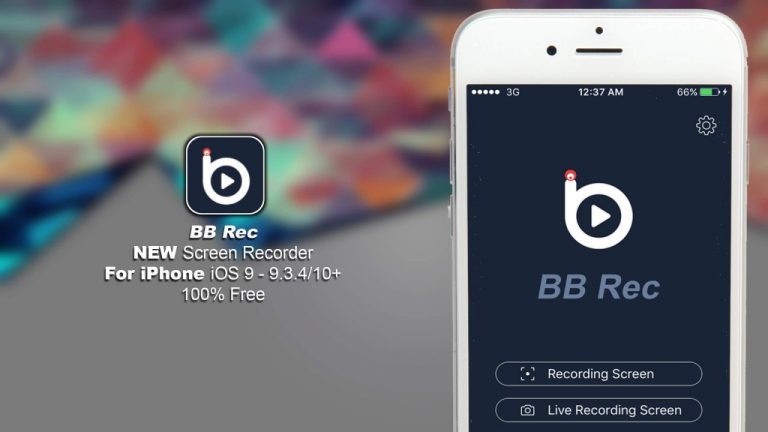Enterprise data integration enables organizations to access data insights to make business decisions. Open source ETL (extract, transform, load) tools have become an essential component of this process by helping to centralize data from multiple sources into one place.
With so many open source ETL tools to choose from, it can be daunting to find the right one for your needs.
Best Open Source ETL Tools for QA Teams

This comprehensive guide compares the best open source ETL software across key criteria to help you select the perfect fit.
What is an Open Source ETL Tool?
An open source ETL tool is used for extracting data from multiple sources, transforming or processing it, and loading it into a destination system for analysis and reporting.
Open source ETL tools offer the benefits of customization, transparency, and cost savings compared to proprietary tools since anyone can access, modify, and distribute the source code for free.
Comparison Criteria for the Best Open Source ETL Tools
When evaluating open source ETL software, you should consider these key features:
- User Interface – Intuitive drag and drop interfaces improve usability.
- Connectivity – The ability to connect to diverse data sources and destinations is essential.
- Transformations – Built-in data transformations, like cleansing, help prepare data for analysis.
- Scalability – Tools should handle large data volumes across distributed systems.
- Support – Even open source tools need documentation, tutorials, and community forums.
Using these criteria, we compared the top 10 open source data integration tools to create this shortlist of the 10 best options:
The 10 Best Open Source ETL Tools for 2024
1. CloverDX
CloverDX is an enterprise-ready ETL platform renowned for its sheer number of built-in connectivity options, intuitive drag-and-drop interface, and extensive data transformation capabilities.
Pros:
- Over 500 built-in components and functions speed development
- Supports connectivity to 1500+ applications with drivers and APIs
- Metadata-driven design with drag and drop simplicity
- Scalable distributed engine handles immense data volumes
- Wide range of built-in data transformations like validation and enrichment
Cons:
- Steeper learning curve than other GUI tools
- Must request pricing through subscriptions available
Best For: Large enterprises needing an end-to-end data integration platform
2. Talend Open Studio
The Talend Open Studio suite delivers a popular open source ETL tool through an accessible Eclipse-based interface with broad connectivity to simplify building data integration jobs.
Pros:
- Eclipse-based IDE improves usability
- 900+ built-in connectors and components
- Drag and drop interface to build integrations
- Works with leading BI tools like Jasper and OLAP
- Free to download and use with no restrictions
Cons:
- Lacks enterprise management and monitoring features
- Basic transforms compared to commercial ETL tools
Best For: Developers seeking an open source graphical ETL tool
3. Scriptella
Scriptella delivers a lightweight Java-based ETL tool optimized for simplicity and automation across numerous scripting languages.
Pros:
- Cross-database ETL made easy
- Database migration and upgrades automated
- Executes JavaScript, Java, SQL, and more
- Integrates into existing systems via JDBC and Ant
- Available as free open source software
Cons:
- Less intuitive than GUI ETL tools
- Smaller community than larger ETL projects
Best For: Java developers wanting an ETL framework
4. Pygrametl
Pygrametl brings Python-based ETL to enterprises through an accessible data warehousing framework supporting dimensional modeling and transformations.
Pros:
- Python ETL framework is easy to use
- Generates star schemas and data marts
- Handles extracting, transforming, loading
- Works with any database supporting dimensions/facts
- Free open source download
Cons:
- Less support compared to larger ETL tools
- Only runs Python-based ETL
Best For: Python developers and data teams
5. Logstash
Logstash excels as a lightweight, open source ETL pipeline tool for streaming server-side data with its strong focus on plugins and data processing.
Pros:
- Specialized for event and log data
- Works with diverse data sources
- Choice of open source plugins
- Handles parsing, transformations
- Integrates well with Elastic Stack
Cons:
- Steep learning curve
- Not suitable for bulk/batch ETL
- No native data warehousing tooling
Best For: Streaming data pipelines
6. Apache NiFi
Apache NiFi delivers robust GUI-based open source ETL with its focus on scalable directed dataflows, real-time processing, and secure transmission of big data.
Pros:
- Open source drag and drop interface
- Handles real-time streaming data
- Scales across multiple servers
- Build custom processors with SDK
- Security via HTTPS and encryption
Cons:
- Steep learning curve
- No native data warehousing
- Requires Java and web server
Best For: Real-time big data pipelines
7. Singer
Singer offers simple, standardized ETL through lightweight data exchange components all communicating via JSON and JSON Schema.
Pros:
- Simplified JSON-based ETL approach
- Loose coupling aids in flexibility
- Any programming language support
- 50+ integrations available
- Open source and free
Cons:
- Requires JSON knowledge
- Less enterprise controls
Best For: Web developers seeking simple data integration
8. Hevo
Hevo brings fully-managed, GUI-driven ETL pipelines to enterprises through its high-performance data integration platform offered as a low-code solution.
Pros:
- No coding ETL made easy
- Scalable to enterprise volumes
- Works with 100+ data sources
- Handles structured, semi-, unstructured data
- Free and paid plans are available
Cons:
- Younger project means smaller community
- No open source download
Best For: Low/no-code cloud ETL platform
9. Kettle
Pentaho Kettle delivers powerful, extensive ETL capabilities through its mature, metadata-driven engine and rich tooling for data integration, replication, and warehousing.
Pros:
- High-performance enterprise-grade ETL
- Works with diverse structured, and unstructured data
- Handles ELT, ETL, ELT processing
- Tools for data integration and warehousing
- Free and open source versions are available
Cons:
- Steep learning curve
- Gated enterprise functionality
Best For: Flexible, scalable open source ETL
10. Cascading
Cascading offers robust, enterprise-ready ETL functions through its pure Java-based framework optimized for big data processing and analytics applications.
Pros:
- Handles large-scale data processing
- Integrates with Hadoop, Spark, and more
- Supports DevOps practices
- Enterprise capabilities like scheduling
- Open source core available
Cons:
- Java developers only
- Steep learning curve
Best For: Big data pipelines and ETL
FAQs:
Here are answers to some commonly asked questions about open source ETL tools:
- Are open source ETL tools secure?
Open source ETL tools like Apache NiFi allow encryption, HTTPS transport, and role-based access controls ensuring secure transmission and usage of sensitive data.
- Can I scale open source ETL tools?
Yes, open source ETL tools like Logstash, Kettle, Cascading, and NiFi allow distributed deployment across servers to handle immense enterprise data volumes and throughput.
- Is open source ETL support reliable?
Popular open source projects have active forums, documentation, tutorials, and professional support options available. Leading ETL tools have been in use for over a decade demonstrating dependable assistance.
- What integrations work with open source ETL tools?
Most open source ETL tools offer hundreds of built-in drivers, plug-ins, and APIs allowing ubiquitous connectivity to everything from legacy systems to the latest cloud platforms.
- Can non-developers use open source ETL tools?
Yes, open source ETL tools like Hevo, CloverDX, Talend, and NiFi offer intuitive, drag-and-drop interfaces allowing no-code interaction while still exposing advanced functionality for developers.
Also Check:
- Best Coding Apps for Teachers to Teach Coding to Students
- Best Video Conferencing Software for Small Business UK
Conclusion
Open source ETL tools now deliver enterprise-grade capabilities allowing any organization to benefit from customizable data integration platforms that grow alongside changing analytics needs.
Leading options like CloverDX, Talend, Kettle, NiFi, and Cascading bring industrial strength ETL functions with mushrooming connectivity options and community-enhanced support.
Simpler tools like Singer, Pygrametl, Scriptella fill niches for developers seeking lightweight frameworks to build custom ETL applications.
No matter your use case, integrating an open source ETL tool into your stack enables more agility and transparency while unlocking data insights through flexible, scalable data centralization.






